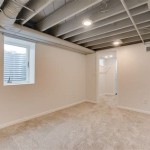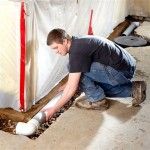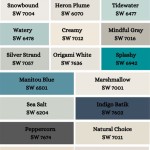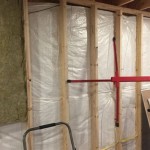What Drywall to Use in Basement: Essential Considerations
When tackling basement remodeling projects, choosing the right drywall is crucial to ensure durability and resistance to moisture and potential mold growth. Given the unique environmental conditions of basements, it's essential to consider specific factors when selecting the appropriate drywall type.
Moisture Resistance
Basements are prone to moisture accumulation due to leaks, condensation, and groundwater seepage. Therefore, moisture-resistant drywall is a necessity. Greenboard drywall, also known as water-resistant drywall, is specifically designed to withstand moisture and prevent water damage. Its gypsum core is treated with water-resistant additives, making it suitable for humid environments like basements.
Mold Resistance
Moisture can lead to the development of mold, which poses serious health hazards. Mold-resistant drywall incorporates mold-inhibiting agents into its gypsum composition. These agents effectively prevent mold growth and maintain a healthier indoor environment.
Fire Resistance
In the event of a fire, fire-resistant drywall can significantly slow down the spread of flames, providing valuable time for evacuation. Fire-resistant drywall employs a thick, dense core that resists ignition and delays flame propagation.
Application Considerations
When installing drywall in a basement, certain application considerations must be taken into account. Ensure that the drywall is installed on framing that is properly sealed and insulated to prevent moisture penetration. Additionally, consider using vapor barriers or plastic sheeting behind the drywall to further reduce moisture infiltration.
Specific Drywall Types for Basements
Besides the aforementioned factors, certain drywall types specifically cater to basement applications:
- DensArmor Plus Interior Drywall: This robust drywall is impact- and water-resistant, making it ideal for basement areas prone to moisture and physical damage.
- QuietRock EZ-Sheetrock Noiseproofing Drywall: For basements intended as living spaces or home theaters, noise-reducing drywall can minimize noise transmission, providing a quieter and more comfortable environment.
Conclusion
Choosing the appropriate drywall for a basement is essential to ensure durability, moisture resistance, and a healthy indoor environment. By considering factors such as moisture resistance, mold resistance, fire resistance, and specific drywall types designed for basement applications, you can make an informed decision that safeguards your basement and enhances its functionality.

Beginners Guide To Installing Basement Drywall Semigloss Design

Don T Test Your Luck With Drywall Why Our Waterproofed Basement Walls Are The Way To Go News And Events For Total Finishing

Beginners Guide To Installing Basement Drywall Semigloss Design

What Type Of Drywall To Use In A Basement Wallboard Trim Tool

Basement Drywall

Basement Remodel Day 4 Hanging Taping Mudding Drywall

How To Drywall A Basement Ceiling Toronto Painters

Is Drywall Ceiling In A Basement Any Good Remodeling Journey

How Much Does It Cost To Drywall A Basement Real Estimate Services

Top Alternatives To Drywall In Basement Renovation
See Also








